Workshop for Early Career Investigators in HIV/AIDS - Participant Biographies
Workshop for Early Career Investigators in HIV/AIDS
Participant Biographies
Opening Remarks
Maureen M. Goodenow, PhD, Office of AIDS Research, Associate Director for AIDS Research and Director, Office of AIDS Research, NIH
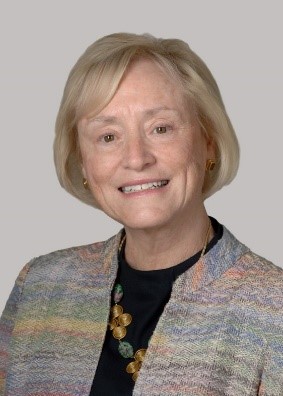
Dr. Goodenow was appointed Associate Director for AIDS Research at the National Institutes of Health (NIH) and Director of the NIH Office of AIDS Research (OAR) in 2016. She leads the OAR in coordinating the NIH HIV/AIDS research agenda to end the HIV pandemic and improve the health of people with HIV. In addition, she is Chief of the Molecular HIV Host Interactions Laboratory at the NIH. Dr. Goodenow previously served as the Acting Director of the Office for Research and Science within the U.S. Department of State, Office of the U.S. Global AIDS Coordinator and Office of Global Health Diplomacy from 2015 to 2016. As a Senior Science Advisor in the Office of Economic Policy’s Bureau of East Asian and Pacific Affairs she received the prestigious Jefferson Science Fellowship in 2012. Dr. Goodenow is also a recipient of the 2019 Esperanza (Hope) award from the Latino Commission on AIDS, for dedication to stemming the tide of HIV and AIDS. Prior to government service, Dr. Goodenow was a Professor of Pathology, Immunology, and Laboratory Medicine at the University of Florida, Gainesville, where she held the Stephany W. Holloway University Endowed Chair for AIDS Research. Furthermore, she was the Director of the Center for Research in Pediatric Immune Deficiency Diseases.
Mentorship Panel
Blanton S. Tolbert, PhD, Case Western University School of Medicine
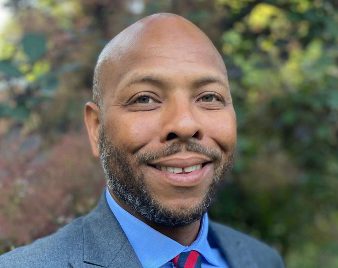
Dr. Tolbert is the Rudolph and Susan Rense Professor of Chemistry at Case Western Reserve University (CWRU). He is also a member of the Center for RNA Science and Therapeutics and the Case Comprehensive Cancer Center (Case CCC). Dr. Tolbert is the Inaugural Vice Dean of Diversity, Equity and Inclusive Excellence at the CWRU School of Medicine and the Associate Director of DEI at Case CCC. He leads a diverse research group that studies biochemical mechanisms by which RNA and Retroviruses replicate within the cellular environment. His group leverages their understanding of the molecular biology of these viruses to identify novel targets for therapeutic intervention. Dr. Tolbert is the principal investigator on several NIH grants including the Nuclear Gene Expression Project of the U54 Center for HIV RNA Studies. Dr. Tolbert is the acting Chairperson of the NIH Office of AIDS Research Advisory Council. He is also a member of the NIH HVCD study section and the Burroughs Wellcome Fund Postdoctoral Enrichment Program (PDEP) Advisory Board. He is on the Editorial Boards of the Journal of Biological Chemistry and Microbiology and Molecular Biology Reviews.
Tabia Henry Akintobi, PhD, MPH, Moorehouse School of Medicine

Dr. Akintobi, is a Professor of Community Health and Preventive Medicine, Dean of Community Engagement, and Principal Investigator and Director of the Prevention Research Center. Germane to these efforts is her demonstrated excellence in community-based participatory research, community-engaged public health practice and experiential learning among trainees across the health professional career development pipeline. She received her bachelor's degree from the University of Miami and earned both a Master of Public Health and Doctor of Philosophy in Public Health from the University of South Florida’s College of Public Health.
As Principal Investigator of the Centers for Disease Control and Prevention-funded Morehouse School of Medicine Prevention Research Center Dr. Henry Akintobi demonstrates leadership in local, national and global community-engaged clinical and translational evaluation and research collaborations and methodologies addressing health disparities, thereby contributing to related science and practice.
Ron Collman, MD, University of Pennsylvania's Perelman School of Medicine
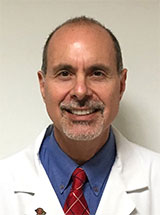
Dr. Collman is a Professor of Medicine and Microbiology at the University of Pennsylvania's Perelman School of Medicine, and Director of the Penn Center for AIDS Research. Dr. Collman received his undergraduate and MD degrees at Boston University School of Medicine, clinical residency and Pulmonary fellowship at Temple University and the University of Pennsylvania School of Medicine, respectively, and postdoctoral training in Microbiology at Penn. Dr. Collman has a longstanding molecular virology research program focused on HIV entry mechanisms and target cell tropism including macrophage tropism, role of cell tropism in viral pathogenesis including neuropathogenesis, as well as coreceptor use and cell targeting in natural and non-natural host SIV infection. He also has a major research interest in the human microbiome focused on the respiratory tract, including bacteria, fungi and viruses in the upper and lower respiratory tract. His group uses novel sampling and analytical approaches to understand the microbiome in this niche, has defined the normal lung microbial population, and is focused on understanding aberrant microbiota in disease and in immune deficiency states.
Sonia C. Flores, PhD, University of Colorado School of Medicine

Dr. Flores is a professor at the Department of Medicine-Pulmonary Sciences and Critical Care at the University of Colorado School of Medicine. She is also the Vice Chair for Diversity and Justice in the Department of Medicine. Her research has focused on the impact that HIV viral proteins have on pulmonary vascular remodeling and alterations in redox status. Dr. Flores also directs the Graduate Experiences for Multicultural Students, or GEMS, which is an NHLBI-funded program that recruits undergraduate and medical students from under-represented populations in science and medicine and provides summer research experiences. The GEMS program has trained more than 300 students interested in biomedical research areas of interest in heart, lung, and blood.
David S. Metzger, PhD, University of Pennsylvania
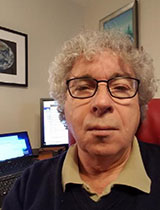
Dr. Metzger is a Research Professor and Director of the HIV Prevention Research Division in the Department of Psychiatry of the Perelman School of Medicine at the University of Pennsylvania. Dr. Metzger is currently the Co-Director of the Penn Mental Health AIDS Research Center and Director of its Developmental Core. He is Director of the Prevention Science and Community Engagement Core of the Penn Center for AIDS Research and the Co-Director of the Prevention Clinical Research Site of the Penn Clinical Trials Unit funded by NIAID. He began conducting research on the efficacy of substance abuse treatment in 1978. Since 1989, he and colleagues from the HIV Prevention Research Division have been conducting AIDS related longitudinal trials among individuals at high risk of infection as well as those living with HIV. Dr. Metzger’s research division has developed innovative community-based strategies for recruiting and retaining individuals into prospective research and clinical trials of biomedical and behavioral prevention interventions. He has led HIV prevention and treatment studies on agonist treatments and counseling strategies for opioid injectors in Philadelphia, China, Thailand, Vietnam and Indonesia. An overarching objective of his work has been to provide valid and reliable data that can increase understanding of the public health impact of participation in substance abuse treatment. Currently, his work involves studies focused on understand the intersecting opioid and HIV epidemics in the US and testing strategies for the integration of the treatments for substance use disorders within HIV treatment and primary care settings.
Adela Cota-Gomez, PhD, University of Colorado School of Medicine
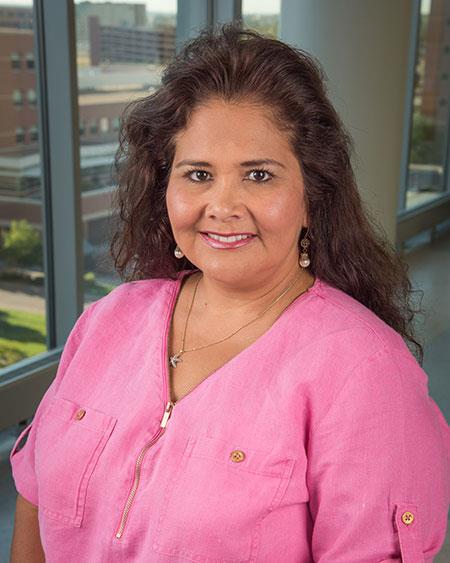
Dr. Cota-Gomez is an Associate Professor in the Department of Medicine-Pulmonary Sciences and Critical Care. She earned her bachelor's degree from University of California Riverside and her Ph.D. from University of Colorado Health Sciences Center. Her research interests focus on uncovering molecular mechanisms involved in the pathogenesis of HIV-PAH. Her personal interest focuses on Promoting diversity, justice and equity in science. Dr. Cota-Gomez has several publications on HIV and associated comorbidities.
Wilton Bryan Williams, PhD, Duke University School of Medicine

Dr. Williams is an Associate Professor in the Department of Surgery, Division of Surgical Sciences, and Assistant Professor in Immunology, at Duke University School of Medicine. He is also a primary member of the Duke Human Vaccine Institute where he serves as the Co-Director for Training and Mentoring, and Director of the Viral Genetics Analysis Service Center. Dr. Williams is a native of the island of Jamaica but immigrated to the United States for higher education in 2001. He earned his BA (Major – Chemistry; Minor – Biology) from Hunter College, City University of New York in New York, NY, in 2004, and his Ph.D. in Biomedical Sciences from the University of Florida in Gainesville, FL, in 2011. At the University of Florida, Dr. Williams studied HIV pathogenesis under the mentorship of Dr. Maureen Goodenow, who is now the Director for the Office of AIDS Research at the National Institute of Health (NIH). Subsequently, he pursued postdoctoral studies in HIV Immunobiology and Vaccine Development at Duke University under the mentorship of Drs. Barton Haynes and Georgia Tomaras. After his postdoctoral training from 2012-2016, he remained at Duke where he was initially promoted to the faculty as Medical Instructor in 2016, followed by Assistant Professor in 2018, and Associate Professor in 2021.
Dr. Williams’ research at the Duke Human Vaccine Institute is focused on understanding host immunity, particularly B cell-derived antibody responses to HIV infection in humans, and Simian-HIV (SHIV) infections in non-human primates (NHPs) that serve as animal models for human HIV-1 infection. Dr. Williams has been an investigator of a number of program grants and large consortium grants for HIV-1 vaccine development and basic immunology. Thus, he has experience in leadership positions and has a passion for translational science research that may yield effective therapies against a myriad of infectious diseases and cancers.
NIH HIV Program Coordinators and Program Officers
Geraldina Dominguez, PhD, National Cancer Institute (NCI)
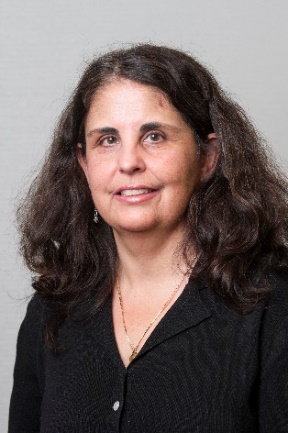
Dr. Dominguez received her B.S. in Applied Biology from the Georgia Institute of Technology and her Ph.D. from Georgia State University. Dr. Dominguez received a Resident Research Associateship from the National Research Council to study the genetic and genomic structure of human herpesviruses 6,7 and 8 at the Centers for Disease Control and Prevention (CDC) in Atlanta, Georgia. After CDC, she moved to the Yerkes National Primate Center of Emory University to conduct studies on the signal transduction pathways and transcriptional regulation of the CART gene (Cocaine and Amphetamine Regulated Transcript). In 2004, Dr. Dominguez started working at the National Cancer Institute as an International Project Officer in the Office of International Affairs, and in 2005 she accepted a Program Director position in the Office of HIV and AIDS Malignancy (OHAM). Currently, she serves as the Director of the AIDS Malignancy Program in OHAM. Dr. Dominguez plays a major role in developing and managing HIV and AIDS malignancy initiatives, including initiatives that increase research capacity in resource constrained settings. Dr. Dominguez has received two NIH Director’s Awards and one NCI Award of Merit for her role in supporting initiatives that build research capacity in resource constrained regions.
Emmanuel F. Mongodin, PhD, National Heart, Lung, and Blood Institute (NHLBI)
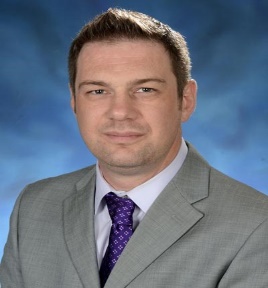
Dr. Mongodin joined NHLBI in 2020 as a Program Director in the institute’s Division of Lung Diseases (DLD). His primary interests include lung responses to pulmonary infections, effects of the microbiome on the host immune response, and HIV/AIDS. He earned his PhD in 2000 from the University of Reims-Champagne-Ardenne in France, where he studied the mechanisms of adherence of Staphylococcus aureus in the airway epithelium. Following his PhD, Dr. Mongodin completed his postdoctoral training initially at VCU (Richmond, VA), then at The Institute for Genomic Research (TIGR; Rockville, MD) and at the J. Craig Venter Institute (Rockville, MD). Dr. Mongodin was later recruited to the Institute for Genome Sciences at the University of Maryland School of Medicine in 2007, before joining NHLBI in August 2020. Initially trained as a physiologist studying host-bacteria interactions, Dr. Mongodin has since become an expert in large-scale next-generation genomic, comparative genomic and metagenomic strategies to further our understanding of host-pathogen interactions in the context of entire microbiome systems. Dr. Mongodin has co-authored over 110 peer-reviewed publications and served on the editorial board and as reviewer of multiple scientific journals.
Que Dang, PhD, National Institute of Allergy and Infectious Diseases (NIAID)

Program Officer and Contracting Officer Representative in the Preclinical Research and Development Branch, Vaccine Research Program, Division of AIDS, NIAID, NIH . I oversee grants and contracts in both the SIV/HIV and TB fields and work with the HIV Vaccine Trials Network to organize an annual Translational HIV Vaccine Early-Stage Investigator Conference.
Interests: innate immunity, pediatric ontogeny, animal models (nonhuman primates and small animals), and HIV/TB co-infection.
Eric Refsland, PhD, National Institute of Allergy and Infectious Diseases (NIAID)
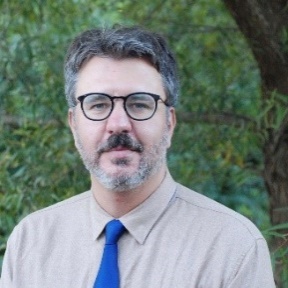
NIAID Division of AIDS (DAIDS) program officer in the Pathogenesis & Basic Research Branch of the Basic Sciences Program. His grant portfolio covers a wide range of basic molecular biology and innate immunity projects related to HIV. He is the Team Lead for the NIH CFAR Program (CFAR), oversees the DAIDS Institutional Research Training Grants (T32), and is a member of the NIH UNITE Initiative.
Robert Palmer, MS, MSc, National Institute of Allergy and Infectious Diseases (NIAID)
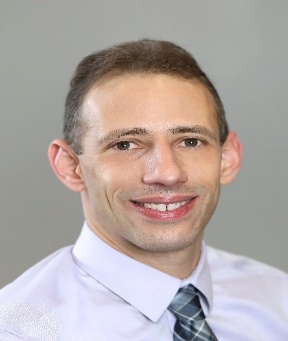
Mr. Palmer is a Health Specialist, Science Planning and Operations Branch, Division of AIDS, NIAID, NIH. He coordinates activities for research initiative development, grant and contract budgeting and have additional responsibilities as a Program Officer and Contracting Officer’s Representative. I also represent NIAID on the NIH AIDS Executive Committee (NAEC).
Sonia Lee, PhD, National Institute of Child Health and Human Development (NICHD)

Dr. Lee is the Acting Branch Chief of the Maternal and Pediatric Infectious Disease Branch at the Eunice Kennedy Shriver National Institute of Child Health and Human Development (NICHD). She primarily works with investigators on adolescent HIV prevention and treatment to design and implement behavioral studies and behavioral components of biomedical studies in youth living with HIV or at risk for HIV. Her grant portfolio also includes global research on adolescent HIV prevention and treatment, mobile health for HIV/AIDS, and assessment of neurodevelopmental outcomes. Prior to joining NICHD in 2006, Dr. Lee was a psychologist on the Special Immunology Service at Children’s National Medical Center in Washington, D.C., dealing with assessment and care of children, adolescents, and families living with HIV.
Woody Lin, MD, PhD, National Institute on Drug Abuse (NIDA)

Dr. Lin’s portfolio oversees training/mentoring and neuroscience research program at National Institute on Drug Abuse, NIH. He is member of the institute Research training Committee and K99/R00 program Committee since 2007. The training program portfolio includes all fellowship and mentored K mechanisms as well as institutional T32 award. The neuroscience program emphasizes clinical and translational research in the areas of pain and of HIV/AIDS. His portfolio also encompasses endogenous homeostatic mechanisms and neuroplasticity in the brains of patients with chronic pain, HIV/AIDS, or prescription opiate use/misuse disorder and research in health disparities. Dr. Lin has been a NIDA Program Official since 2001. Prior to joining the NIH, he was an anesthesiologist, a physician scientist in Pain Medicine, in Complementary and Integrative Health and a neuroscience investigator. He is a member of the American Academy of Pain Medicine, and the NIH Pain Consortium.
Vasundhara Varthakavi, DVM, PhD, National Institute on Drug Abuse (NIDA)

Dr. Vasundhara
Varthakavi (Kavi) is the Associate Director of the HIV Research Program (HRP) at the National Institute on Drug Abuse (NIDA) of the National Institutes of Health (NIH). Kavi is involved in developing the scientific vision, strategic management, implementation, and budgetary oversight of the NIDA HIV research portfolio. She plays a vital role in developing, managing, planning and coordinating scientific programs through collaborations with the Office of AIDS Research (OAR), other NIH institutes and federal agencies, and the scientific community. Before joining NIDA, she was a Scientific Review Officer at the National Institute of Allergy and Infectious Diseases (NIAID) where she managed reviews of HIV/AIDS-related research grants, career development grant applications, and R&D contract proposals. Kavi was a research faculty in the Vanderbilt Pediatric Infectious Diseases division before coming to NIH. She is a molecular virologist with expertise in HIV assembly and pathogenesis.
Susannah Allison, PhD, National Institute of Mental Health (NIMH)

Dr. Allison is a Program Officer at the National Institute of Mental Health within the Division of AIDS Research. She is also the Training Director for the division and for the Center for Global Mental Health Research. She oversees a portfolio of research and research training grants that focuses on innovative strategies to prevent HIV infection among children, adolescents, and young adults as well as research on how best to enhance the well-being of youth who are living with HIV. She serves as the co-chair of the Sexual and Gender Minority Research Coordinating Committee at NIH. Prior to working at NIMH, Dr. Allison worked with children and families infected and affected by HIV in Baltimore, Miami, and Washington, DC. She completed her doctorate at the George Washington University where she received her PhD in Clinical Child Psychology with an emphasis in child health psychology.
Lisa Begg, PhD, RN, Office of Research on Women's Health (ORWH)
Dr. Begg is a Research Program Officer at ORWH.
Christopher Barnhart, Ph.D., Sexual & Gender Minority Research Office (SGMRO)
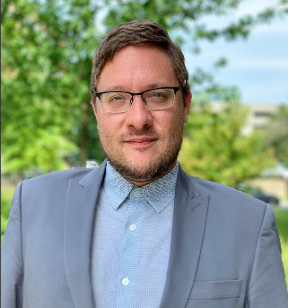
Dr. Barnhart is currently a Health Science Policy Analyst in the Sexual & Gender Minority Research Office at the National Institutes of Health where he supports and promotes the health of sexual and gender minority communities through analysis of relevant grant portfolios, coordination of administrative supplements, engagement with the extramural research community, manuscript and report authorship, strategic planning, workshop execution, and representation on trans-NIH, -HHS, and -federal committees and working groups. He also remains committed to fostering the next generation of scientists through mentorship, technical assistance, and outreach activities. Prior to coming to the SGMRO, Christopher was an AAAS Science and Technology Policy Fellow on detail to the Eunice Kennedy Shriver National Institute of Child Health and Human Development where he analyzed and reported on NICHD activities in supporting and protecting pediatric and maternal health and in addressing relevant health disparities to a diverse array of internal and external stakeholders. Christopher received his doctorate in pharmacology and toxicology from UC Davis in 2015, and then completed a postdoctoral fellowship at the Albert Einstein College of Medicine, focusing at both institutions on how environmental toxicants and individual genetic factors may interact to affect the developing nervous system.
NIH Peer Review: Process Overview
Shiv Prasad, PhD, Center for Scientific Review
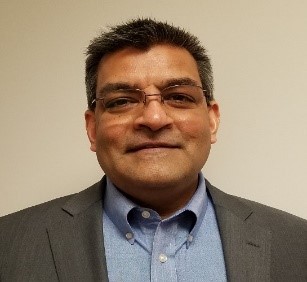
Dr. Prasad is the scientific review officer for the HIV Immunopathogenesis and Vaccine Development study section at the Center for Scientific Review (CSR). He has also run numerous HIV review panels on drug discovery, phylodynamics, and co-morbidities. Dr. Prasad received his undergraduate and graduate degrees at the University of Florida and the University of Minnesota, respectively. Following postdoctoral studies at the NIH, he was a program officer at the National Institute of Allergy and Infectious Diseases.
David Chang, PhD, Center for Scientific Review
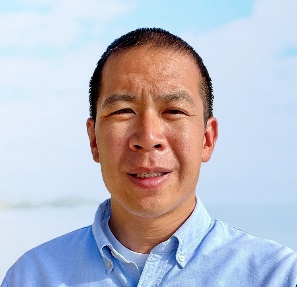
Dr. Chang received his Ph.D. from the Uniformed Services University of the Health Sciences, where he studied connections between the HIV-1 envelope glycoprotein, broadly neutralizing antibodies, and disease progression. In addition, he developed a novel replication-competent alphavirus expression vector based on Fort Morgan virus. He then joined the U.S. Military HIV Research Program, Walter Reed Army Institute of Research, as a research scientist in the Laboratory of Molecular Virology and Pathogenesis, investigating the molecular epidemiology of HIV in Asia and Africa and developing full-genome infectious molecular clones of HIV. He also collaborated in the characterization of CNS compartmentalization during acute HIV infection. Dr. Chang has experience from biotech, focusing on pre-clinical viral vaccine development. He comes to CSR after serving as a Scientific Review Officer at National Institute of Allergy and Infectious Diseases.
Facilitators
Rahel Abebe, MHS, Office of AIDS Research, NIH

Ms. Abebe joined the OAR in 2016. She currently works as a Public Health Analyst where she supports and coordinates the HIV/AIDS Funding requests from ICOs, workshop execution and various scientific program activities of OAR. Prior to Joining the OAR, she worked for the Division of AIDS (DAIDS) in the National Institute of Allergy and Infectious Diseases, where she served as Health Specialist for the HIV Research Branch (HIVRB). She managed and coordinated non-network funded grants and new initiatives, as well as the Clinical Science Research Committee (CSRC) review process. Ms. Abebe earned her B.S. in Health Science from York College of Pennsylvania, and master’s (MHS) from the George Washington University, with an emphasis on Clinical Research and Global Health.
Elisabet (“Lis”) Caler, PhD, Office of AIDS Research, NIH

Dr. Caler joined the NIH OAR as a health scientist administrator in September 2019. Before joining OAR Lis served as a Program Director in the Heart, Lung and Blood Institute, Division of Lung Diseases where led the Lung Response to Pulmonary Infections, Microbiome, AIDS and Tuberculosis area, focusing on cellular and molecular lung responses to HIV, tuberculosis (TB), and non-TB mycobacterial infection, as well as other and viral, bacterial and fungal pathogens that cause pneumonia. Currently, Dr. Caler leads the Basic and Translational Science Workstream within the NIH OAR Science Group, overseeing crosscutting areas of research including Vaccine Development, Microbicides and MPTs, HIV Associated Comorbidities, Coinfections and Complications and Research Toward HIV Cure and the NH OAR Early Career Investigators in HIV Initiative. This Workshop is part of the effort.
This page last reviewed on April 28, 2025

